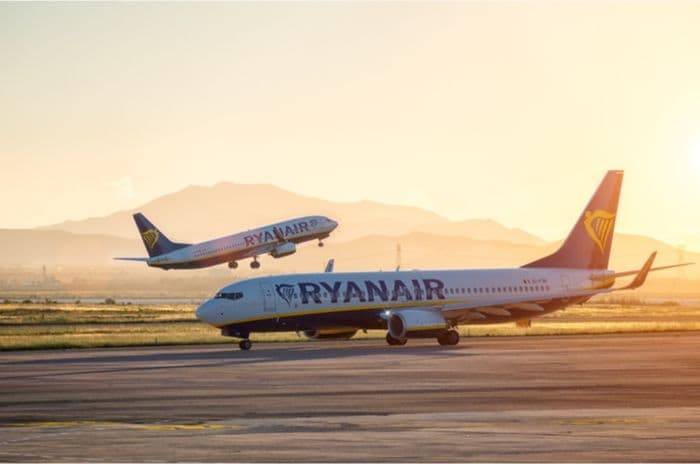Home > Money > News > Ryanair get Paypal, customers lose protection
Ryanair get Paypal, customers lose protection
RYANAIR customers can now use Paypal to pay for their flights.

The move puts the budget Irish airline alongside British Airways, Lufthansa and American Airlines who all already accept Paypal and have for many years.
"Ryanair revolutionised low fare air travel in Europe," Louise Phelan, Paypal's Vice President for Global Operations in Europe said.
"As the pioneer of faster, safer online payments, Paypal is delighted to help Ryanair develop its customer experience by making it even easier and quicker for travellers to book and pay for their flights online."
But, with all of these airlines, paying with Paypal can significantly reduce the amount of protection available to consumers.
Lost section 75 protection
In particular, protection for purchases under section 75 of the Consumer Credit Act is lost when consumers pay through the Paypal platform.

Ryanair are charging the same fees for a Paypal transaction as they charge for a credit card payment, 2% of the cost of the flight, so their customers are getting less protection, at least under law, for the same price.
Section 75 means that when a credit cardholder makes a transaction of more than £100 and less than £30,000 the card provider is jointly liable, with the retailer, for getting making sure that purchase is actually delivered without faults or damage.
Flights are a classic section 75 claim. If a airline goes bust or something else goes wrong consumers have often struggled to get their money back except by making a claim through Section 75.
Paypal causes a problem with these claims because, as a third party payment service, it adds an extra link in the chain between the purchaser/borrower, the lender and the retailer.
Once the credit card provider and the seller aren't in a direct relationship, because they're communicating through the Paypal platform, equal liability, and therefore extra consumer protection, disappears.
Don't gain Paypal buyer protection
In the case of Ryanair especially, however, Section 75 may not be all that useful. Many of the airline's flights are way under £100, and therefore not liable for equal liability in any case.
Paypal also doesn't stop Ryanair customers from being eligible for a range of other consumer protections including the Air Travel Organisers' Licensing scheme (ATOL), which protects package holidays, and European Union (EU) travel regulations, which ensure that consumers get compensation for flight delays and cancellations.
Paypal customers do gain Paypal Buyer Protection, the company's own refund scheme.
However, that only covers items that are either not received at all or that arrived by are 'significantly not as described'.
Services, including airline flight tickets, are specifically not covered (the Buyer Protection terms and conditions even note that this lack of coverage is "without limitation").
Credit card fees come down
The sudden popularity of Paypal among airlines is even more puzzling given that the amount travel companies can charge for credit card transactions has come down considerably over the past year.
The EU Directive on Consumer Rights 2014, which came into force in mid June this year, makes it illegal for airlines to charge more than it actually costs to process a payment in surcharges.
In the UK, after many years of talk and no action on such surcharges, we actually implemented this same ban a little bit earlier than the EU, in April 2013.
Those rules didn't affect Ryanair, since they're based in Dublin, but now all European carriers are following the same guidelines.
In 2010, according to a Government report, airlines charged passengers up to £350 million in card surcharges.
Get insider tips and the latest offers in our newsletter
Get insider tips and the latest offers in our newsletter

We are independent of all of the products and services we compare.

We order our comparison tables by price or feature and never by referral revenue.

We donate at least 5% of our profits to charity, and we aim to be climate positive.
Latest News

26 October 2022
Cost of living showing worrying trends in affordability
16 June 2022
FCA warn lenders on cost of living difficulties


